By kwadwo ampofo-agyemang. January, 2025.
Introduction
In Ghana, women play a crucial role in agriculture, contributing significantly to food production and economic stability. Despite their efforts, female smallholder farmers in urban areas face numerous challenges, including limited access to land, financial constraints, and inadequate market opportunities. The documentary Urban Soil, Rural Struggles: Women in Agribusiness sheds light on these struggles and explores possible solutions to improve their livelihoods.
Interview with Sister Yaa at Abuakwa DKC, Ghana
During our field research, we interviewed Sister Yaa, a smallholder farmer in Abuakwa DKC, Ghana, who has been engaged in farming for over 13 years. Despite her commitment to farming, she struggles with lack of financial support, access to markets, and resources to expand her farm. She emphasized that with the right investment in tools and training, she could significantly increase productivity and contribute to food security in the area.
“I have been farming for over a decade, yet I struggle to access the financial support I need to expand. If we had better support systems, we could feed more families and create jobs for others,” – Sister Yaa.
INTERVIEW WITH SISTER YAA, DISCUSSING HER 13-YEAR JOURNEY IN FARMING AND THE CHALLENGES SHE FACES IN SUSTAINING HER AGRIBUSINESS.
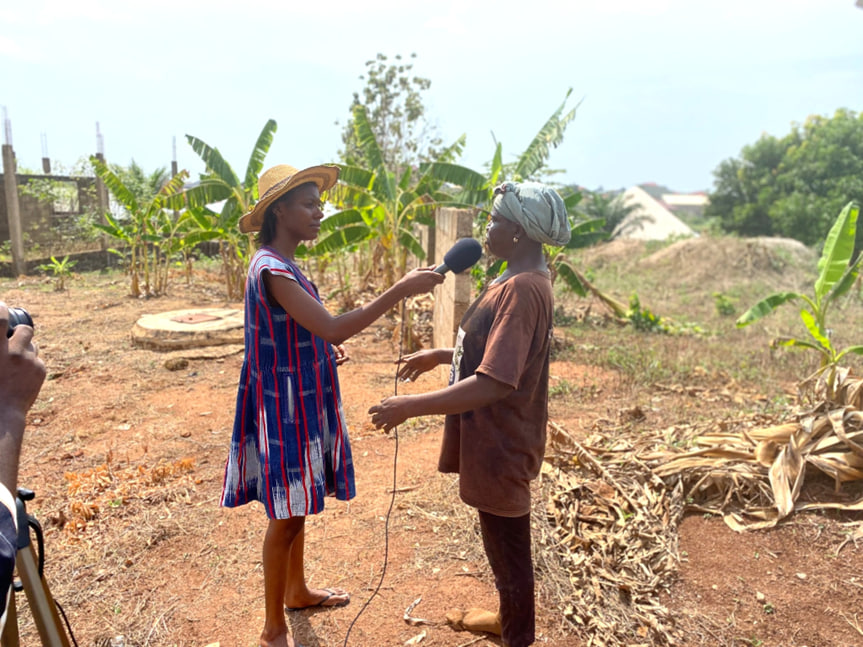
We also spoke with other female farmers in the region who left food crop farming for cash crops due to the lack of support. Many women in agriculture face similar challenges, making it difficult to sustain food production in urban communities.
A group of female farmers who shared their challenges and why many shifted from food crops to cash crops due to a lack of support.
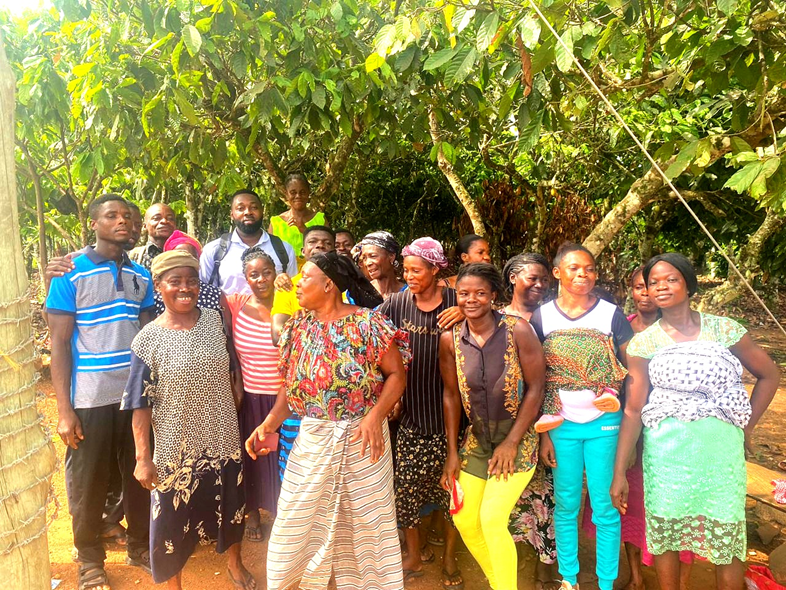
1. The Importance of Smallholder Farming in Food Security
Smallholder farmers are responsible for producing 80% of the world’s food supply (FAO, 2023). In Ghana, they contribute significantly to feeding the nation, particularly in urban areas where food demand is high. Despite their contributions, these farmers often lack essential resources such as land, technology, and funding, limiting their productivity and profitability.
Our team with Sister Yaa at her farm, highlighting the need for more support for women in agriculture.
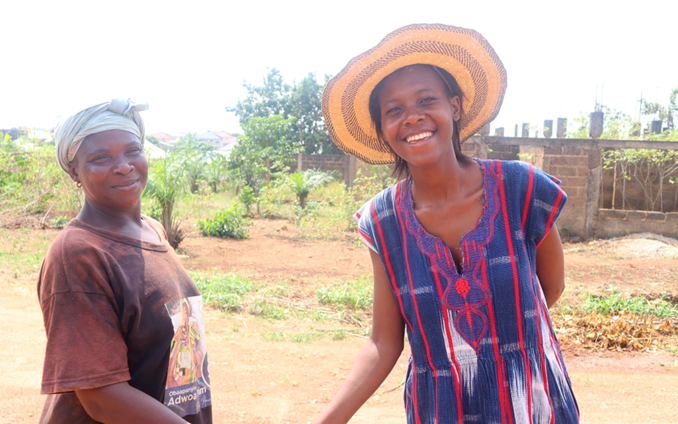
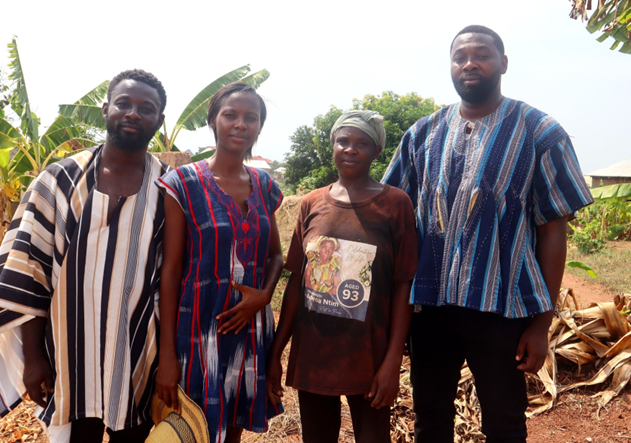
2. A Call to Action – How Stakeholders Can Support Female Urban Farmers
To address these challenges, stakeholders including government agencies, NGOs, private investors, and the general public must take active steps to support female smallholder farmers. Some key action points include:
- Providing financial assistance through low-interest loans and grants specifically designed for women in agriculture.
- Enhancing market access by creating direct farm-to-market programs that help women sell their produce at fair prices.
- Investing in modern agricultural technology to improve efficiency and reduce manual labor burdens on female farmers.
- Encouraging policy changes that grant women greater access to land and ownership rights.
3. Visualizing the Data – Infographics and Key Stats
A Pie Chart Illustrating the Percentage of Food Produced by Smallholder Farmers Worldwide
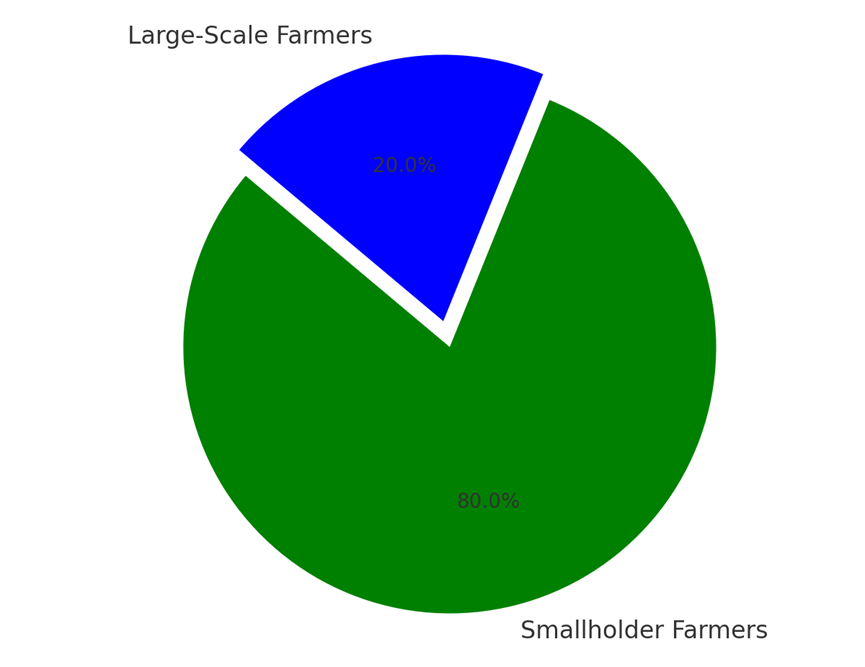
This pie chart illustrates that smallholder farmers produce approximately 80% of the world’s food supply. Despite their significant contribution to global food security, they often lack access to essential resources such as financing, land, and advanced farming technologies.
A Bar Graph Showing the Financial Disparity Between Male and Female Farmers in Ghana
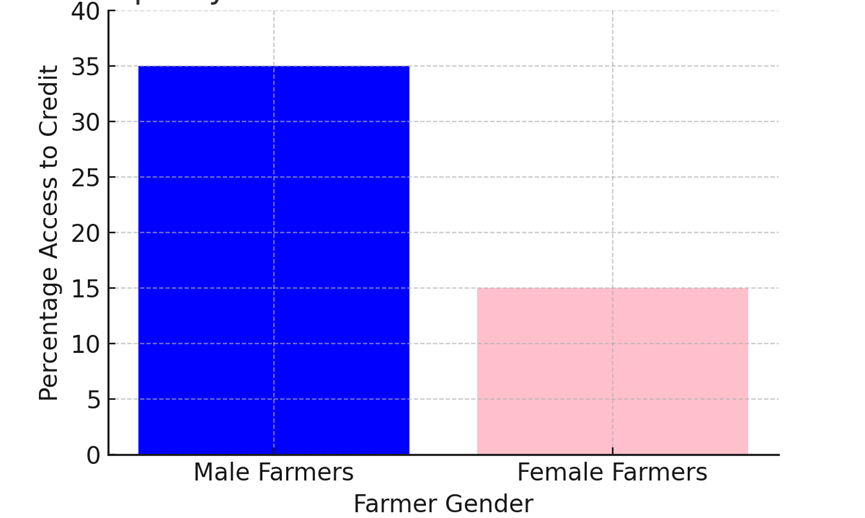
This bar graph highlights the financial disparity in access to credit between male and female farmers in Ghana. Research shows that only 15% of female farmers have access to formal credit compared to 35% of male farmers (World Bank, 2022). This funding gap significantly impacts productivity and farm expansion for women in agribusiness.
4. Comparing Urban and Rural Female Farmers
While urban female farmers face challenges in land access and market penetration, rural farmers deal with infrastructure issues and remoteness from major markets.
| Challenges | Urban Farmers | Rural Farmers |
| Access to Land | Low | Moderate |
| Market Access | Moderate | Low |
| Availability of Resources | Low | Very Low |
| Financial Support | Low | Low |
| Infrastructure Support High Low | High | Low |
5. Policy Recommendations and Global Best Practices
Governments can adopt policies from successful case studies in other countries to improve the agricultural landscape for female farmers in Ghana. Some strategies include:
Land Ownership Reform: Countries like Rwanda have successfully increased women’s access to land through legal reforms.
Technology Access Programs: India has introduced mobile-based advisory services to educate women on modern farming techniques.
Agricultural Cooperatives: Kenya has seen success in forming women-led farming cooperatives that pool resources and increase bargaining power.
Conclusion
Women smallholder farmers like Sister Yaa are the backbone of Ghana’s food security, yet they continue to face systemic barriers in urban agriculture. Through policy changes, access to finance, training, and technology, we can empower them to thrive and contribute to economic growth. The documentary Urban Soil, Rural Struggles: Women in Agribusiness is a call to action for stakeholders to support these resilient women and drive sustainable development in Ghana’s agricultural sector.

Leave a Reply